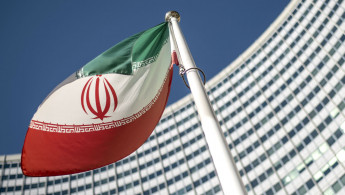Iran parliament passes counter-terror finance bill in bid to salvage nuclear deal
Iran's parliament approved a bill to counter terrorist financing that was strongly opposed by conservatives but seen as vital to salvaging the nuclear deal with European and Asian partners, reports confirmed on Sunday.
The bill, one of four put forward by the government to meet demands set by the international Financial Action Task Force (FATF), was passed by 143 votes to 120, according to the semi-official ISNA news agency.
It aims to bring Iran's laws in line with international standards and allows it to join the UN Terrorism Financing Convention.
"Neither I nor the president can guarantee that all problems will go away if we join (the UN convention)," said Foreign Minister Mohammad Javad Zarif during the debate ahead of the vote.
"But I guarantee that not joining will provide the US with more excuses to increase our problems," he added.
Iran is currently alone with North Korea on the blacklist of the FATF, which monitors global money laundering and terrorist financing.
In June, the Paris-based FATF gave Iran three months to pass laws needed to be removed from the blacklist, which has added to the Islamic republic's woes in accessing global banking.
Earlier this week, the International Court of Justice ordered the US to lift sanctions on medicine, food and civilian airplane spare parts, an apparent bid by President Donald Trump's administration to squeeze Iran's economy.
The UN's top court handed down the judgement on Wednesday after Iran asked it to halt economic measures that Trump reimposed after pulling out the landmark 2015 nuclear accord that was signed under his predecessor Barack Obama.
The court said sanctions on goods "required for humanitarian needs... may have a serious detrimental impact on the health and lives of individuals on the territory of Iran".
US sanctions also had the "potential to endanger civil aviation safety in Iran and the lives of its users”.
The case is the second brought by Tehran against Washington since 2016. That year it brought a suit at the ICJ against the freezing of around $2 billion of Iranian assets abroad which US courts say should go to American victims of terror attacks.
Agencies contributed to this report.
Follow us on Twitter: @The_NewArab





 Follow the Middle East's top stories in English at The New Arab on Google News
Follow the Middle East's top stories in English at The New Arab on Google News


